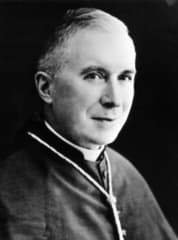アヴェ・マリア・インマクラータ!
愛する兄弟姉妹の皆様、
レネー神父様の「恩寵はどのように働くのか」の霊的講話(日本語訳)をご紹介いたします。
天主様の祝福が豊かにありますように!
トマス小野田圭志神父(聖ピオ十世会司祭)
親愛なる兄弟の皆さん、
昨日、私たちは非常に重要な真理を見ました。私たちの主イエズス・キリストの恩寵に対する二つの必要性があることです。私たちが、私たちの主イエズス・キリストの恩寵を必要とするのは、つまり主の御助けを必要とするのは、第一に、原罪による傷と私たちの過去の罪による傷を癒やすためです。私たちの主イエズス・キリストの恩寵を必要とするのは、第二に、私たちの命を天主の子の命にまで高めるため、天主の子として生きるためです。恩寵は私たちの本性を癒やし、高めてくれます。でも、どのようにでしょうか?
聖パウロは、その答えをローマ人へ書簡を書いたときに与えました。「私たちに与えられた聖霊によって、この心に天主の愛が注がれた」(ローマ5章5節)。また、聖トマス・アクィナスは、愛徳は聖霊の最高にして最良の賜物だが、愛徳は他のすべての徳、「注入された徳」と呼ばれる超自然の徳を伴ってやって来て、また、「注入された徳」と呼ばれるのはまさに聖霊によって私たちの霊魂の中に注がれる(注入される)からだ、と説明しています。皆さんは覚えていらっしゃると思いますが、罪による傷は悪への傾きです。そこで聖霊が私たちに善への傾きを与えてくださることによって私たちの霊魂を癒やしてくださる、ということです。これらの徳は、あらゆる領域における、まさに善への傾きなのです。
聖トマスは、聖霊による第一の基本となる賜物は「成聖の恩寵」であり、これは私たちの霊魂の本体そのものにある良き性質であって、私たちの霊魂が私たちの主イエズス・キリストの命を生きるようにさせる、と説明しています。ですから聖パウロはガラツィア人にこう書くことができました。「私は生きているが、もう私ではなく、キリストが私のうちに生き給うのである」(ガラツィア2章20節)。体の一つの肢体は個別の命を持たず、体全体の命で生きています。ですから、私たちの主イエズス・キリストの神秘体の肢体は、キリストの命で生きているのです。成聖の恩寵によって、私たちはキリストの神秘体の中に「接ぎ木」されています。天主の樹液のようなキリストの命が私たちに流れ込み、こうしてその樹液が私たちを義とし、私たちをして天主をお喜ばせさせるのです。「私はぶどうの木で、あなたたちは枝である。私がその人のうちにいるように私にとどまる者は多くの実を結ぶ」(ヨハネ15章5節)。
霊魂の本体そのものの良き性質が私たちの能力に流れ込み、そこにおいて「注入された徳」すなわち信仰、希望、愛、およびすべての道徳的な注入された徳によって花を咲かせます。これらの徳によって、特に愛によって、私たちの意志はもはや天主に反逆することはなく、むしろすべてに超えて天主を愛し、それゆえに「正しくされた」状態になり、まことに義の状態になるのです。プロテスタントたちが間違って言うように、単に「義と宣言される」のではありません。信仰の徳によって、私たちは、天主によって啓示されたすべての真理、天主の教会であるカトリック教会によって教えられたすべての真理を信じる傾きを与えられます。希望の徳によって、私たちは、天国を望み、天国に至るためのキリストの助力に信頼する傾きを与えられます。愛の徳によって、私たちは、すべてに超えて天主を愛し、天主のために隣人を愛する傾きを与えられます。
これらの徳が、私たちの霊魂に善への傾きを与えることによって、罪の傷による悪しき傾きを正すのが、皆さんには分かるでしょう。これらの徳は、これらの悪しき傾きを減少させることによって、少しずつその傷を癒やし、また私たちが注意深く罪を避けるならばこの癒やしが日々強められるのです。しかし、皆さんはまた、これらの徳が天主の子の徳であることも分かります。それは子どもに特有の徳であって、父親を非常に信頼するため、彼は父親が告げるすべてのことを信じるのです。また父親の腕の中にいる子どもは、自分が能力をはるかに超えたことを成し遂げることができると確信します。ですから、私が子どものころ、私たちが山にいるいとこたちを訪ねたとき、父は私たちを肩にのせました。そのとき、私たちは、自分たちがどんな山にでも登れると信じました! 私たちの天主への愛は人間同士の愛ではなく、子どもとしての天の御父への愛なのです。このように、これらの徳、私たちの霊魂にある恩寵の効果は、どちらも私たちの本性を癒やし、高めてくれます。
しかし、命のあらゆる領域において道徳的な徳もあります。聖トマスは美しくこれらの徳を描写しましたが、数が多すぎてここですべてを述べることはできません。四つの枢要徳、つまり賢慮、正義、剛毅、節制と、それらに付随した徳のいくつかについて述べることにしましょう。賢慮の徳が注入されると、私たちは究極の目的のため、すなわち天国へ行くため、天主の掟に従った正しい手段を選ぶように傾きを与えられます。こんにち、自分たちの命を天主へと秩序付けようとしなかったり、実践において天主の掟を無視したりする人がいかに多いでしょうか。超自然の賢慮(の徳)の注意深い働きによって、掟に従い、天国へ至る道で聖人に倣うことができるのです。
正義の徳が注入されると、私たちは他人に対する義務である借りを返すよう傾きを与えられます。ですからまず第一に、天主の子としての生活の中で重要な部分を占めている宗教の徳によって、天主に対する義務である礼拝を天主に捧げるよう傾きを与えられます。宗教の徳はすべてに影響を与え、「天主の栄光のために」(コリント前書10章31節)私たちにあらゆる善きわざを行うようにさせてくれます。しかし、正義はまた、両親や合法的当局者へ当然払うべき敬意を示すように、また合法的な命令にはすべて従うように、といった傾きを私たちに与えてくれます。この徳の中で最も高い徳は、従順という福音的勧告に見いだされます。
剛毅の徳が注入されると、私たちは誘惑に対して強くあり屈服しないよう、粘り強く善を行ってこの地上での十字架を担うのを耐え忍ぶよう、傾きを与えられます。私たちには、殉教者たちのように信仰を告白する勇気を持ち、善を率先して行い悪に従わない勇気を持つという傾きが与えられます。この徳の中で最も高い徳は、殉教者たちに見いだされます。
節制の徳が注入されると、私たちは楽しみや慰めについてあらゆる行き過ぎを避けるだけでなく、罪からさらに離れて過去の罪の償いをするために、自制して合法的にでき得ることまでも喜んで捨てるという傾きが与えられます。この徳の中の最も高い徳は、地上の物の所有と肉の楽しみを一切捨てることである清貧と貞潔と完全な童貞性という福音的勧告に見いだされます。
しかし、ある人はこう言うかもしれません。「でも神父様、私たちがこれらの注入された徳を持っているのなら、私たちの中に悪への傾きや善を行う困難さが見られるのはどうしてですか?」。その理由は、善への傾きを伴っているこれらの注入された徳が超自然のレベルにある一方で、悪への傾きを伴っている罪による傷は自然のレベルにあるのであり、そのため(自然のレベルにある方が)人がより感じやすいのです。聖パウロは、この闘いを書簡で次のように美しく述べています。「実に肉の望むことは霊に反し、霊の望むことは肉に反する。それらは相反している」(ガラツィア5章17節)。これらの注入された徳は善への力強い傾きですが、自動的にそうなのではなく、私たちの側で意識して選び取る必要があります。私たちは、徳のあるように行動するよう選ばなければなりません! こうして、これら霊魂の力を働くようにさせるため、私たちはその力に正しい動機、超自然の動機、信仰による動機を与える必要があります。これを力強い車に例えてみましょう。ポルシェにしましょうか。アクセルを踏めばその力を感じることができますが、ギアをニュートラルにすると車は動きません。実際にその力で車を動かすためには、ギアを入れる必要があります。そうすれば、エンジンの本当の力を感じます。ですから、これら超自然の徳についても同じで、信仰の動機を持つことによって、信仰の光の中で生きることによって、それらの徳にギアを入れるのです。聖パウロの複数の書簡を読めば、このことがよく出てくるのが皆さんにも分かるでしょう。
例えば、私たちが「天主はどこにでもおられ、私を見ておられる」ことを常に自覚していて、それによって私たちの天の御父の慈愛に満ちた御目のもとで生きるならば、確実に多くの悪を避けるでしょうし、自分の義務を果たそうとさらに多くの注意を払うでしょう。実際、子どものことを考えてみると、父親がその子の後ろにいるだけでも、その子は例えば勉強をするなど正しいことをしようと注意を払い、コンピューターゲームで時間を無駄にしないでしょう。その上、天主は私たちがすることを見ておられるだけでなく、私たちが言うことを聞いておられ、私たちが考えることさえもお見通しなのです! 「被造物のうち一つとして天主のみ前に隠れられるものはないのであって、すべては天主のみ前に明らかであり開かれている」(ヘブライ4章13節)。「人間は目で見るけれども主は心を見る」(サムエル上16章7節)。
また、御子である天主が私たちのことを気にかけてくださるあまり、天から下って私たちの救いのために十字架上で苦しみ、私たちが罪に死ぬようにするため十字架上で亡くなられ、私たちが天主に向かって新しい命に生きるよう(ローマ6章4、11節参照)三日目によみがえられたことを私たちが常に思うならば、私たちが十字架の犠牲を常に目の前に置くならば、いったいどうして新たな不忠実によってその御苦しみを増やそうと私たちはあえて思うでしょうか? いったいどうしてそんな考えが、すべてにおいて天主をお喜ばせするさらに大いなる熱心さ、天主の聖なる御意志を行うさらに大いなる熱心さ、これらの徳すべてを実践に移そうとするさらに大いなる熱心さを、私たちに燃え立たせないでしょうか? こういう訳で、良きカトリックの家庭では、すべての部屋に磔刑像か聖画があるのであり、その結果、そのような考えが常に私たちの心にあって、私たちの主イエズス・キリストへの愛を実践に移すのを助けてくれるのです! これは、聖パウロがエフェゾ人に次のように言っていることです。「実に愛される子らとして、天主に倣う者であれ。私たちを愛し、私たちのために芳しい香りのいけにえとして天主にご自分を渡されたキリストの模範に従って、愛のうちに歩め」(エフェゾ5章1-2節)。聖パウロは、このように十字架につけられたイエズスをあらゆる完全な愛の模範として考え、すぐに続けて実践的な結論をこう引き出します。「聖徒にふさわしいように、淫行、いろいろなけがれ、情欲は口にさえもするな」(エフェゾ5章3節)。聖パウロにおいて、私たちの主の犠牲という超自然的動機が、いかに純潔と貞潔という注入された徳にギアを入れるのかを見てください。コリント人に対して、聖パウロは似たような動機を取り上げ、非常に強い言葉で締めくくります。「あなたたちの体はキリストの肢体であることを知らないのか。それなのに、キリストの肢体をとって娼婦の肢体にしてよかろうか。決してそうはしない!」(コリント前書6章15節)。まさに問題外です! ここでもまた、超自然的動機を考察してください。
聖パウロはまた、別の超自然の動機を提示します。「あなたたちが天主の聖所であり、天主の霊はその中に住み給うことを知らないのか。天主の聖所を壊す者があれば、天主は彼を壊される。天主の聖所は聖なるものである。あなたたちはその聖所である」(コリント前書3章16-17節)。「あなたたちの体はその内にある天主から受けた聖霊の聖所であって、自分のものではないと知らないのか。まことにあなたたちは高値で買われたものである。だから、その体をもって天主に光栄を帰せよ」(コリント前書6章19-20節)。
彼の書簡全体を通じて、聖パウロはすべての徳を実践するために、これら高い信仰の動機を提示します。これはまさに、私が説明しようとしていることです。天主の子にふさわしい生き方をするため、恩寵に素直に従う生き方をするため、私たちはこれらの信仰の動機すべてを持ち、それらに従うことが必要です。明らかなのは、これらの注入された超自然の徳を行う動機は信仰の動機であって、だからこそ信仰のことを考えれば、これらの注入された徳が全力で働くのを感じ、善を行い誘惑に打ち勝つ力、自制する力、天主の掟に忠実である力、聖人になる力を感じるのです。こうして天主の恩寵によって、私たちの主は私たちの本性を癒やし、高めてくださいます。私たちは御父なる天主の子として生き、御子なる天主である私たちの主イエズス・キリストの肢体として生き、聖霊の神殿として生きるのです。
注入された徳は、例えば秘蹟と祈りを通じて、また功徳の実りとして、あふれんばかりの新たな恩寵によって増やされていきます。このようにこれらの徳を実践に移すことによって、私たちは功徳を得ることができ、それによって徳を増やすことができるのです。しかしその上、これらの超自然の徳を実践に移すことそのものが、対応する自然の徳を増大させるのです。事実、本来それらの自然の徳は、理性の光に照らして良い行いを繰り返すことよって得られるものです。例えば、バイオリンを長い時間練習することによって、人はバイオリン奏者になります。さて、これらの信仰の動機は、理性に反するどころか、これらの注入された徳によってする良い行いを繰り返すことによって私たちの理性を光で満たし、私たちの意志を天主の強い愛で満たすのです。こうして私たちは少しずつですが、私たちの本性にある傷にまったく反する自然の徳も得ていくのであり、またこれらは同じ自然のレベルにあるので、これらの自然の徳が増えれば増えるほど、私たちの本性はさらに癒やされ、傷はさらに小さくなるのです。
非常に重要なポイントが一つあります。天主は私たちに強制はなさらないということです。天主は私たちの霊魂に愛徳とこれらの注入された徳のすべてを注ぐことによって、私たちに善を行う傾きをやさしく与えてくださいますが、私たちに強制はなさらず、どんな暴力を使うこともなさいません。私たちがそれを求めなければなりません! 私たちは天主の恩寵に協力しなければならず、天主が私たちの霊魂に注いでくださった愛とこれらの徳を実践に移さなければなりません。また恩寵に協力するために、上で説明したように、私たちは「信仰によって生き」(ローマ1章17節)なければならず、私たちの命に関する信仰についてこのような理解を持たなければならず、信仰のことを考えることによってこれらの徳にギアを入れなければなりません。私たちの霊魂に注がれた愛徳、そして他のこれらすべての注入された徳は、上で説明したように、私たちに善を行うよう傾きを与えます。しかし私たちは、信仰の光に照らされて、意識して天主を選ぶように、天主に忠実であるように、恩寵に協力しなければなりません。
私たちは、天主の子としてのこの人生において、聖人たちの模範、とりわけ童貞聖マリアの模範にたくさんの支えと励ましを見いだします。昨日、私たちはカルメル会の保護聖人、黙想のお手本、信仰と徳の生活のお手本であるカルメル山の聖母の祝日を祝ったばかりです。教会は典礼の中で毎日、この聖性の道において私たちを励ましてくれる一人の聖人あるいは一つの神秘のどちらかを与えてくれます。
結論として言えば、私たちは天主の恩寵、癒やし高めてくれる恩寵を必要とします。この恩寵によって、私たちの本性にある傷が癒やされ、私たちの命は天主の子の命になるのです。私たちの主イエズス・キリストは「恩寵と真理に満ちて」(ヨハネ1章14節)おられます。「私たちはその満ちあふれるところから恩寵に次ぐ恩寵を受けた」(ヨハネ1章16節)。私たちは祈りと秘蹟によって、その恩寵をいつも受けています。私たちの主は、私たちに主の霊、聖霊を与えることによって、私たちの心に天主とすべての善の方を向く傾きを与えるべく、私たちの霊魂に愛徳とすべての注入された徳を注ぐことによって、私たちの悪しき傾きを癒やしてくださいます。聖母とすべての聖人が、私たちが私たちの主イエズス・キリストの恩寵に常に素直であり、主の先行的恩寵に心を込めて協力するよう、私たちを助けてくださり、そうすることで私たちが天国への王道を、永遠の命へ至る十字架の道を進むことができますように。アーメン。
愛する兄弟姉妹の皆様、
レネー神父様の「恩寵はどのように働くのか」の霊的講話(日本語訳)をご紹介いたします。
天主様の祝福が豊かにありますように!
トマス小野田圭志神父(聖ピオ十世会司祭)
2016年10月9日 聖霊降臨後の第21主日―大阪 霊的講話「恩寵はどのように働くのか」
親愛なる兄弟の皆さん、
昨日、私たちは非常に重要な真理を見ました。私たちの主イエズス・キリストの恩寵に対する二つの必要性があることです。私たちが、私たちの主イエズス・キリストの恩寵を必要とするのは、つまり主の御助けを必要とするのは、第一に、原罪による傷と私たちの過去の罪による傷を癒やすためです。私たちの主イエズス・キリストの恩寵を必要とするのは、第二に、私たちの命を天主の子の命にまで高めるため、天主の子として生きるためです。恩寵は私たちの本性を癒やし、高めてくれます。でも、どのようにでしょうか?
聖パウロは、その答えをローマ人へ書簡を書いたときに与えました。「私たちに与えられた聖霊によって、この心に天主の愛が注がれた」(ローマ5章5節)。また、聖トマス・アクィナスは、愛徳は聖霊の最高にして最良の賜物だが、愛徳は他のすべての徳、「注入された徳」と呼ばれる超自然の徳を伴ってやって来て、また、「注入された徳」と呼ばれるのはまさに聖霊によって私たちの霊魂の中に注がれる(注入される)からだ、と説明しています。皆さんは覚えていらっしゃると思いますが、罪による傷は悪への傾きです。そこで聖霊が私たちに善への傾きを与えてくださることによって私たちの霊魂を癒やしてくださる、ということです。これらの徳は、あらゆる領域における、まさに善への傾きなのです。
聖トマスは、聖霊による第一の基本となる賜物は「成聖の恩寵」であり、これは私たちの霊魂の本体そのものにある良き性質であって、私たちの霊魂が私たちの主イエズス・キリストの命を生きるようにさせる、と説明しています。ですから聖パウロはガラツィア人にこう書くことができました。「私は生きているが、もう私ではなく、キリストが私のうちに生き給うのである」(ガラツィア2章20節)。体の一つの肢体は個別の命を持たず、体全体の命で生きています。ですから、私たちの主イエズス・キリストの神秘体の肢体は、キリストの命で生きているのです。成聖の恩寵によって、私たちはキリストの神秘体の中に「接ぎ木」されています。天主の樹液のようなキリストの命が私たちに流れ込み、こうしてその樹液が私たちを義とし、私たちをして天主をお喜ばせさせるのです。「私はぶどうの木で、あなたたちは枝である。私がその人のうちにいるように私にとどまる者は多くの実を結ぶ」(ヨハネ15章5節)。
霊魂の本体そのものの良き性質が私たちの能力に流れ込み、そこにおいて「注入された徳」すなわち信仰、希望、愛、およびすべての道徳的な注入された徳によって花を咲かせます。これらの徳によって、特に愛によって、私たちの意志はもはや天主に反逆することはなく、むしろすべてに超えて天主を愛し、それゆえに「正しくされた」状態になり、まことに義の状態になるのです。プロテスタントたちが間違って言うように、単に「義と宣言される」のではありません。信仰の徳によって、私たちは、天主によって啓示されたすべての真理、天主の教会であるカトリック教会によって教えられたすべての真理を信じる傾きを与えられます。希望の徳によって、私たちは、天国を望み、天国に至るためのキリストの助力に信頼する傾きを与えられます。愛の徳によって、私たちは、すべてに超えて天主を愛し、天主のために隣人を愛する傾きを与えられます。
これらの徳が、私たちの霊魂に善への傾きを与えることによって、罪の傷による悪しき傾きを正すのが、皆さんには分かるでしょう。これらの徳は、これらの悪しき傾きを減少させることによって、少しずつその傷を癒やし、また私たちが注意深く罪を避けるならばこの癒やしが日々強められるのです。しかし、皆さんはまた、これらの徳が天主の子の徳であることも分かります。それは子どもに特有の徳であって、父親を非常に信頼するため、彼は父親が告げるすべてのことを信じるのです。また父親の腕の中にいる子どもは、自分が能力をはるかに超えたことを成し遂げることができると確信します。ですから、私が子どものころ、私たちが山にいるいとこたちを訪ねたとき、父は私たちを肩にのせました。そのとき、私たちは、自分たちがどんな山にでも登れると信じました! 私たちの天主への愛は人間同士の愛ではなく、子どもとしての天の御父への愛なのです。このように、これらの徳、私たちの霊魂にある恩寵の効果は、どちらも私たちの本性を癒やし、高めてくれます。
しかし、命のあらゆる領域において道徳的な徳もあります。聖トマスは美しくこれらの徳を描写しましたが、数が多すぎてここですべてを述べることはできません。四つの枢要徳、つまり賢慮、正義、剛毅、節制と、それらに付随した徳のいくつかについて述べることにしましょう。賢慮の徳が注入されると、私たちは究極の目的のため、すなわち天国へ行くため、天主の掟に従った正しい手段を選ぶように傾きを与えられます。こんにち、自分たちの命を天主へと秩序付けようとしなかったり、実践において天主の掟を無視したりする人がいかに多いでしょうか。超自然の賢慮(の徳)の注意深い働きによって、掟に従い、天国へ至る道で聖人に倣うことができるのです。
正義の徳が注入されると、私たちは他人に対する義務である借りを返すよう傾きを与えられます。ですからまず第一に、天主の子としての生活の中で重要な部分を占めている宗教の徳によって、天主に対する義務である礼拝を天主に捧げるよう傾きを与えられます。宗教の徳はすべてに影響を与え、「天主の栄光のために」(コリント前書10章31節)私たちにあらゆる善きわざを行うようにさせてくれます。しかし、正義はまた、両親や合法的当局者へ当然払うべき敬意を示すように、また合法的な命令にはすべて従うように、といった傾きを私たちに与えてくれます。この徳の中で最も高い徳は、従順という福音的勧告に見いだされます。
剛毅の徳が注入されると、私たちは誘惑に対して強くあり屈服しないよう、粘り強く善を行ってこの地上での十字架を担うのを耐え忍ぶよう、傾きを与えられます。私たちには、殉教者たちのように信仰を告白する勇気を持ち、善を率先して行い悪に従わない勇気を持つという傾きが与えられます。この徳の中で最も高い徳は、殉教者たちに見いだされます。
節制の徳が注入されると、私たちは楽しみや慰めについてあらゆる行き過ぎを避けるだけでなく、罪からさらに離れて過去の罪の償いをするために、自制して合法的にでき得ることまでも喜んで捨てるという傾きが与えられます。この徳の中の最も高い徳は、地上の物の所有と肉の楽しみを一切捨てることである清貧と貞潔と完全な童貞性という福音的勧告に見いだされます。
しかし、ある人はこう言うかもしれません。「でも神父様、私たちがこれらの注入された徳を持っているのなら、私たちの中に悪への傾きや善を行う困難さが見られるのはどうしてですか?」。その理由は、善への傾きを伴っているこれらの注入された徳が超自然のレベルにある一方で、悪への傾きを伴っている罪による傷は自然のレベルにあるのであり、そのため(自然のレベルにある方が)人がより感じやすいのです。聖パウロは、この闘いを書簡で次のように美しく述べています。「実に肉の望むことは霊に反し、霊の望むことは肉に反する。それらは相反している」(ガラツィア5章17節)。これらの注入された徳は善への力強い傾きですが、自動的にそうなのではなく、私たちの側で意識して選び取る必要があります。私たちは、徳のあるように行動するよう選ばなければなりません! こうして、これら霊魂の力を働くようにさせるため、私たちはその力に正しい動機、超自然の動機、信仰による動機を与える必要があります。これを力強い車に例えてみましょう。ポルシェにしましょうか。アクセルを踏めばその力を感じることができますが、ギアをニュートラルにすると車は動きません。実際にその力で車を動かすためには、ギアを入れる必要があります。そうすれば、エンジンの本当の力を感じます。ですから、これら超自然の徳についても同じで、信仰の動機を持つことによって、信仰の光の中で生きることによって、それらの徳にギアを入れるのです。聖パウロの複数の書簡を読めば、このことがよく出てくるのが皆さんにも分かるでしょう。
例えば、私たちが「天主はどこにでもおられ、私を見ておられる」ことを常に自覚していて、それによって私たちの天の御父の慈愛に満ちた御目のもとで生きるならば、確実に多くの悪を避けるでしょうし、自分の義務を果たそうとさらに多くの注意を払うでしょう。実際、子どものことを考えてみると、父親がその子の後ろにいるだけでも、その子は例えば勉強をするなど正しいことをしようと注意を払い、コンピューターゲームで時間を無駄にしないでしょう。その上、天主は私たちがすることを見ておられるだけでなく、私たちが言うことを聞いておられ、私たちが考えることさえもお見通しなのです! 「被造物のうち一つとして天主のみ前に隠れられるものはないのであって、すべては天主のみ前に明らかであり開かれている」(ヘブライ4章13節)。「人間は目で見るけれども主は心を見る」(サムエル上16章7節)。
また、御子である天主が私たちのことを気にかけてくださるあまり、天から下って私たちの救いのために十字架上で苦しみ、私たちが罪に死ぬようにするため十字架上で亡くなられ、私たちが天主に向かって新しい命に生きるよう(ローマ6章4、11節参照)三日目によみがえられたことを私たちが常に思うならば、私たちが十字架の犠牲を常に目の前に置くならば、いったいどうして新たな不忠実によってその御苦しみを増やそうと私たちはあえて思うでしょうか? いったいどうしてそんな考えが、すべてにおいて天主をお喜ばせするさらに大いなる熱心さ、天主の聖なる御意志を行うさらに大いなる熱心さ、これらの徳すべてを実践に移そうとするさらに大いなる熱心さを、私たちに燃え立たせないでしょうか? こういう訳で、良きカトリックの家庭では、すべての部屋に磔刑像か聖画があるのであり、その結果、そのような考えが常に私たちの心にあって、私たちの主イエズス・キリストへの愛を実践に移すのを助けてくれるのです! これは、聖パウロがエフェゾ人に次のように言っていることです。「実に愛される子らとして、天主に倣う者であれ。私たちを愛し、私たちのために芳しい香りのいけにえとして天主にご自分を渡されたキリストの模範に従って、愛のうちに歩め」(エフェゾ5章1-2節)。聖パウロは、このように十字架につけられたイエズスをあらゆる完全な愛の模範として考え、すぐに続けて実践的な結論をこう引き出します。「聖徒にふさわしいように、淫行、いろいろなけがれ、情欲は口にさえもするな」(エフェゾ5章3節)。聖パウロにおいて、私たちの主の犠牲という超自然的動機が、いかに純潔と貞潔という注入された徳にギアを入れるのかを見てください。コリント人に対して、聖パウロは似たような動機を取り上げ、非常に強い言葉で締めくくります。「あなたたちの体はキリストの肢体であることを知らないのか。それなのに、キリストの肢体をとって娼婦の肢体にしてよかろうか。決してそうはしない!」(コリント前書6章15節)。まさに問題外です! ここでもまた、超自然的動機を考察してください。
聖パウロはまた、別の超自然の動機を提示します。「あなたたちが天主の聖所であり、天主の霊はその中に住み給うことを知らないのか。天主の聖所を壊す者があれば、天主は彼を壊される。天主の聖所は聖なるものである。あなたたちはその聖所である」(コリント前書3章16-17節)。「あなたたちの体はその内にある天主から受けた聖霊の聖所であって、自分のものではないと知らないのか。まことにあなたたちは高値で買われたものである。だから、その体をもって天主に光栄を帰せよ」(コリント前書6章19-20節)。
彼の書簡全体を通じて、聖パウロはすべての徳を実践するために、これら高い信仰の動機を提示します。これはまさに、私が説明しようとしていることです。天主の子にふさわしい生き方をするため、恩寵に素直に従う生き方をするため、私たちはこれらの信仰の動機すべてを持ち、それらに従うことが必要です。明らかなのは、これらの注入された超自然の徳を行う動機は信仰の動機であって、だからこそ信仰のことを考えれば、これらの注入された徳が全力で働くのを感じ、善を行い誘惑に打ち勝つ力、自制する力、天主の掟に忠実である力、聖人になる力を感じるのです。こうして天主の恩寵によって、私たちの主は私たちの本性を癒やし、高めてくださいます。私たちは御父なる天主の子として生き、御子なる天主である私たちの主イエズス・キリストの肢体として生き、聖霊の神殿として生きるのです。
注入された徳は、例えば秘蹟と祈りを通じて、また功徳の実りとして、あふれんばかりの新たな恩寵によって増やされていきます。このようにこれらの徳を実践に移すことによって、私たちは功徳を得ることができ、それによって徳を増やすことができるのです。しかしその上、これらの超自然の徳を実践に移すことそのものが、対応する自然の徳を増大させるのです。事実、本来それらの自然の徳は、理性の光に照らして良い行いを繰り返すことよって得られるものです。例えば、バイオリンを長い時間練習することによって、人はバイオリン奏者になります。さて、これらの信仰の動機は、理性に反するどころか、これらの注入された徳によってする良い行いを繰り返すことによって私たちの理性を光で満たし、私たちの意志を天主の強い愛で満たすのです。こうして私たちは少しずつですが、私たちの本性にある傷にまったく反する自然の徳も得ていくのであり、またこれらは同じ自然のレベルにあるので、これらの自然の徳が増えれば増えるほど、私たちの本性はさらに癒やされ、傷はさらに小さくなるのです。
非常に重要なポイントが一つあります。天主は私たちに強制はなさらないということです。天主は私たちの霊魂に愛徳とこれらの注入された徳のすべてを注ぐことによって、私たちに善を行う傾きをやさしく与えてくださいますが、私たちに強制はなさらず、どんな暴力を使うこともなさいません。私たちがそれを求めなければなりません! 私たちは天主の恩寵に協力しなければならず、天主が私たちの霊魂に注いでくださった愛とこれらの徳を実践に移さなければなりません。また恩寵に協力するために、上で説明したように、私たちは「信仰によって生き」(ローマ1章17節)なければならず、私たちの命に関する信仰についてこのような理解を持たなければならず、信仰のことを考えることによってこれらの徳にギアを入れなければなりません。私たちの霊魂に注がれた愛徳、そして他のこれらすべての注入された徳は、上で説明したように、私たちに善を行うよう傾きを与えます。しかし私たちは、信仰の光に照らされて、意識して天主を選ぶように、天主に忠実であるように、恩寵に協力しなければなりません。
私たちは、天主の子としてのこの人生において、聖人たちの模範、とりわけ童貞聖マリアの模範にたくさんの支えと励ましを見いだします。昨日、私たちはカルメル会の保護聖人、黙想のお手本、信仰と徳の生活のお手本であるカルメル山の聖母の祝日を祝ったばかりです。教会は典礼の中で毎日、この聖性の道において私たちを励ましてくれる一人の聖人あるいは一つの神秘のどちらかを与えてくれます。
結論として言えば、私たちは天主の恩寵、癒やし高めてくれる恩寵を必要とします。この恩寵によって、私たちの本性にある傷が癒やされ、私たちの命は天主の子の命になるのです。私たちの主イエズス・キリストは「恩寵と真理に満ちて」(ヨハネ1章14節)おられます。「私たちはその満ちあふれるところから恩寵に次ぐ恩寵を受けた」(ヨハネ1章16節)。私たちは祈りと秘蹟によって、その恩寵をいつも受けています。私たちの主は、私たちに主の霊、聖霊を与えることによって、私たちの心に天主とすべての善の方を向く傾きを与えるべく、私たちの霊魂に愛徳とすべての注入された徳を注ぐことによって、私たちの悪しき傾きを癒やしてくださいます。聖母とすべての聖人が、私たちが私たちの主イエズス・キリストの恩寵に常に素直であり、主の先行的恩寵に心を込めて協力するよう、私たちを助けてくださり、そうすることで私たちが天国への王道を、永遠の命へ至る十字架の道を進むことができますように。アーメン。










